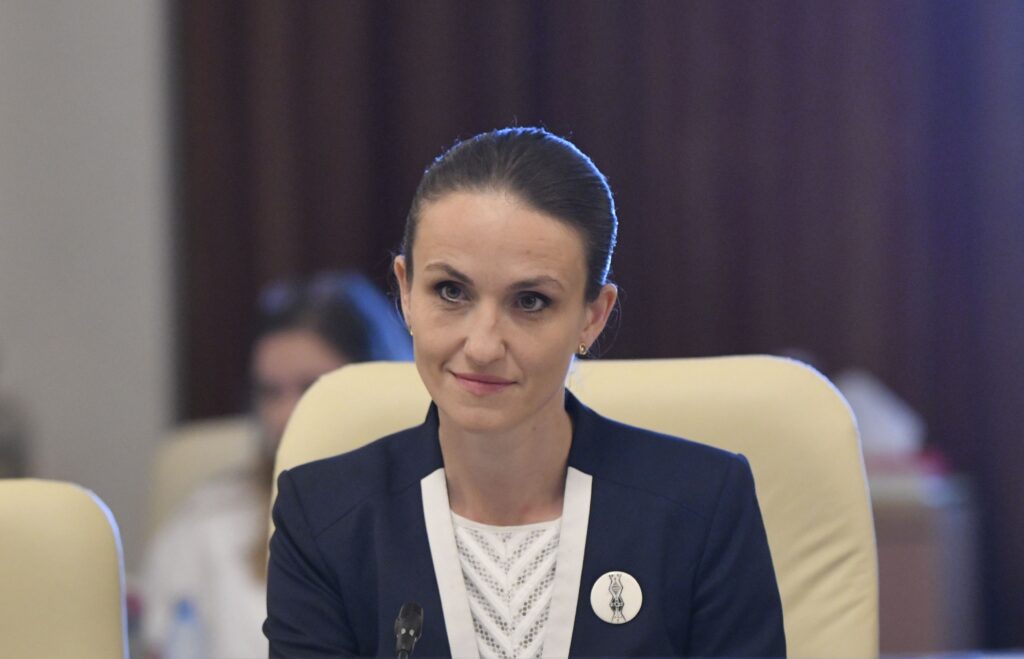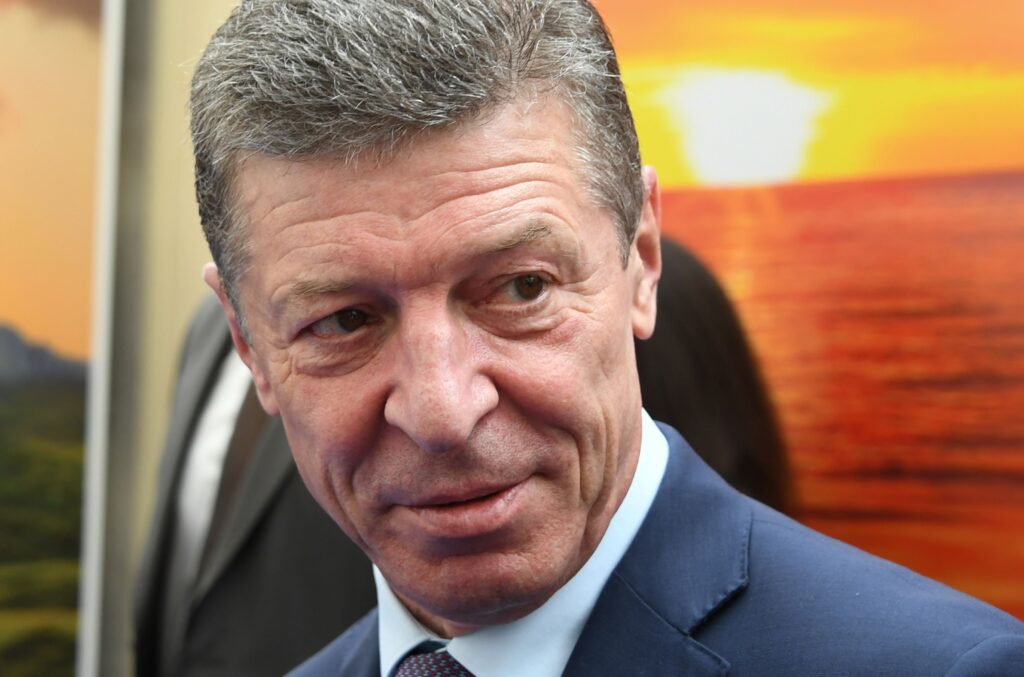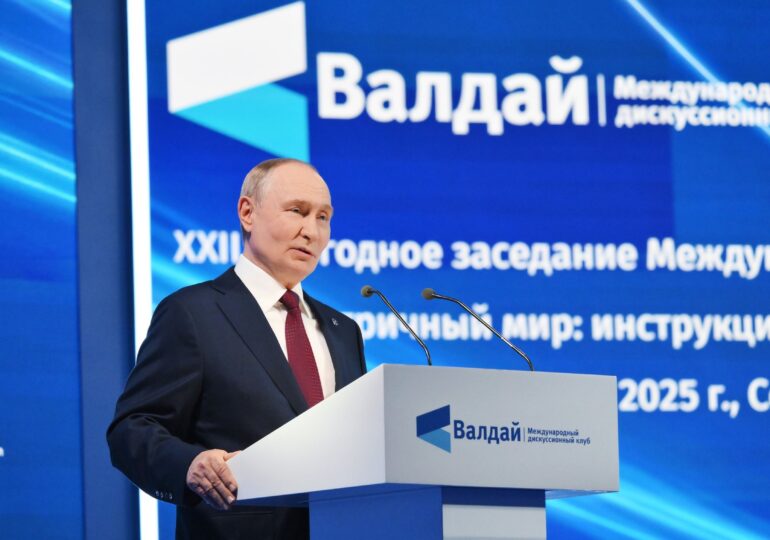Vladimir Putin has keenly felt the strategic defeat in Moldova. According to multiple sources, through the network created by Ilan Șor, the oligarch based in Moscow, around 300 million dollars were spent in hybrid operations to block Chisinau’s European path.
The victory of the party founded by President Maia Sandu in the parliamentary elections on September 28 and the obtained score, which allows them to govern for the next four years, represented a severe blow to the Kremlin, which aimed to take political control in Moldova in order to slow down and complicate European aid to Ukraine and weaken its western flank.
But the interesting part of the Russian leader’s reaction is that he blames Romania and the European Union for the failure of the attempt to take political control in Moldova.
In a speech at the Valdai Club, a conference outlining the directions of Russian propaganda, Vladimir Putin once again referred to Romania, stating that the annulment of last year's elections confirms the collapse of Western democracy.
"Western political regimes are not willing to give up power, openly deceiving their own citizens, escalating the situation externally, and resorting to all sorts of tricks in their own countries - increasingly pushing the limits of the law, if not beyond. However, endlessly transforming democratic electoral procedures into a farce and manipulating the will of the people, as happened, for example, in Romania, will not work...," said Vladimir Putin during an intervention at the event.
Russia's Form without Substance
The Russian leader views the defensive reaction of European states against Russia's intense attacks and interferences as a failure of democracy, confirming once again, if needed, that a dictator is unable to perceive the world outside the corrupt mechanisms through which he maintains power.
While in recent decades, Vladimir Putin has eliminated his political enemies by poisoning or shooting them, such as Alexander Litvinenko, Boris Nemtsov, or Alexei Navalny, being just three well-known examples from the endless string of political crimes ordered by the Kremlin, in European democracies, leaders have changed several times, as well as parliamentary factions and government officials.
In the 26 years since Vladimir Putin has been in power in Russia, five presidents have passed through the White House and led America's destiny. In the same period, Romania has also had five heads of state: Emil Constantinescu (1996-2000), Ion Iliescu (2000-2004), Traian Băsescu (2004-2014), Klaus Iohannis (2014-2025), and Nicușor Dan (2005…).
In European countries, the situation is the same, changes occur every four or five years, depending on the constitutional and legal provisions regarding the organization of free elections. In the West, despite its problems, democracy functions; citizens constantly change the country's leadership and their representatives in parliament through voting.
In Russia, institutions are mere forms without substance, built only to provide the supreme leader with the levers for the absolute exercise of power and the impression that he is loved and supported by the citizens.
Moreover, Western political leaders do not have the habit of killing their opponents, even if there are frequent differences of opinion.
Romania's Harsh Reaction to Putin
"Russia has interfered in electoral processes and tried to influence elections in Romania, as it recently attempted in the Republic of Moldova. It does so systematically. It failed because the citizens of these countries prefer other values and perspectives.
I have said very clearly before that we will never accept lessons on democracy, elections, or press freedom coming from Moscow.
A country that aggresses a sovereign neighbor, trying to annex its territories in a brutal conquest war, committing war crimes, sending its citizens to death by the hundreds of thousands, where the opposition is assassinated just steps away from the Kremlin, and where there is no independent press or freedom of expression, is not in a position to give lessons to anyone," reacted the Romanian Ministry of Foreign Affairs in an extremely harsh statement towards Vladimir Putin.

The Explanation for a Surprise Resignation
Ten days before the elections in Moldova, Dmitri Kozak resigns from the position of Deputy Director of the Presidential Administration, a highly influential position, in the immediate proximity of Putin.
There has been much speculation about his departure after working with the current president for three decades before he took over the reins of Russia.
According to a statement by the oligarch Mikhail Khodorkovsky, imprisoned for 10 years and deprived of his wealth by Putin, later seeking refuge in the West, Kozak resigned because he realized that the pro-Russian forces would lose the elections in Moldova.
"I have long tried to understand the true reasons for Kozak's departure. And it can now be said with certainty: he is happy that he left in time. He is no longer responsible for the failure in Moldova. Nor for the hundreds of millions wasted. In the backstage battle, greed has joined stupidity, and Kozak has remained apart from this catastrophe," announced Khodorkovsky, quoted by journalist Vitalie Cojocaru in a commentary for RFI radio.

Dmitri Kozak has been heavily involved with Moldova over the past 25 years, proposing a memorandum in 2003 that was supposed to solve the Transnistrian issue through the federalization of the country. It entailed the creation of an upper chamber of parliament divided equally between areas controlled by Russia and Moldova - 13 Moldovan senators, 9 Transnistrians, and 4 Gagauz.
The authorities in Chisinau rejected the memorandum at the last minute, which would have confirmed Putin's political control over Moldova.
The reference to Romania, in the context of the victory in Chisinau of pro-European forces, once again indicates that the Russian leader considers Bucharest an enemy, explaining the intensity of the hybrid war to which we are subjected.

